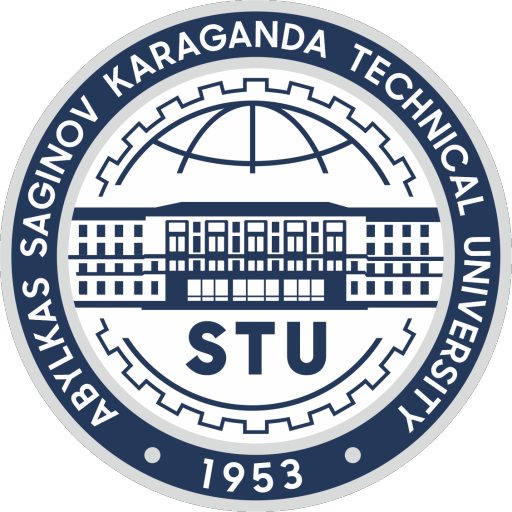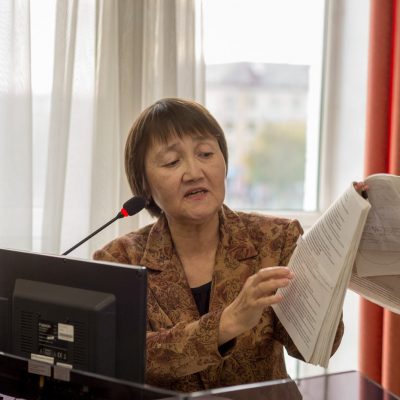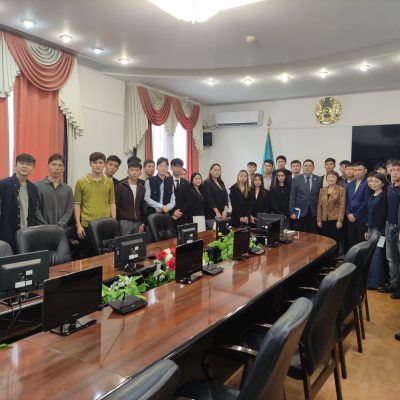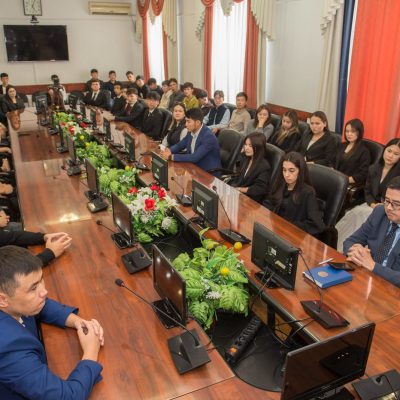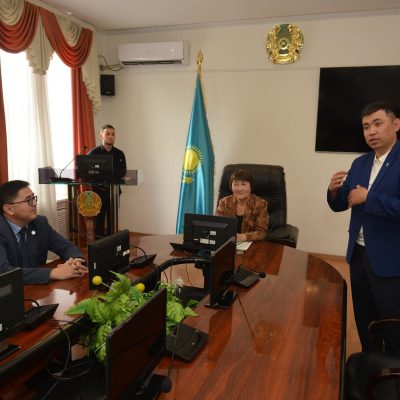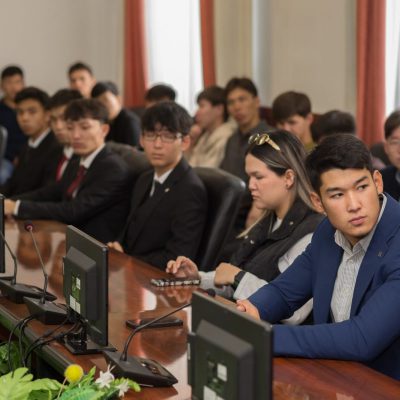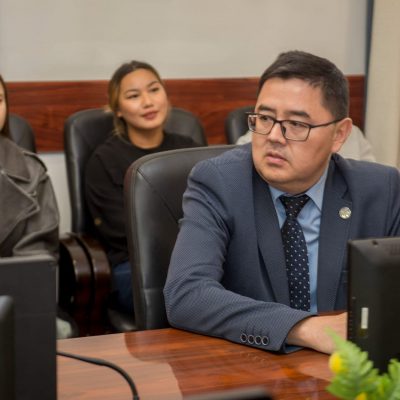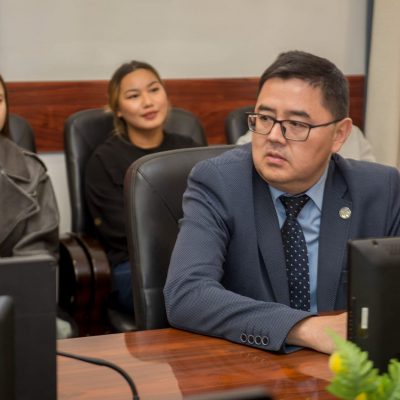What is corruption? It would seem that there is no particular need to explain to University students what it is. But as the meeting with the speaker of the information and analytical pool of the anti-corruption service of the Karaganda region A.I. Suleimenova and the officer of the prevention department of the same service A.E. Saktapergen showed, many of them had a fairly general idea of that vicious phenomenon.
It is a lot talked about. Anti-corruption competitions and the other events are held under resounding slogans like “No to corruption!” But at the same time, not every such fighter against corruption can explain the difference between the old Law “On the Fight against Corruption” that was adopted in 1998, and the new one “On Combating Corruption”. Some people even believe that it is one and the same Law. Well aware of this thanks to her extensive experience working with different segments of the population, the speaker of the information and analytical pool of the Anti-corruption Service of the Karaganda region explained in an accessible form the difference between the fight against corruption and counteracting it. She emphasizes that the fight against corruption involves punishment for an already committed corruption act, while counteracting it involves measures aimed at preventing corruption. In other words, the mere intention to use an official position for selfish purposes is already considered a corrupt act. Moreover, not only those who take bribes are subject to punishment but also those who give them. Intermediaries, if any, will not go unpunished either.
It is interesting that among the long list of those held liable for the payment of illegal rewards (among them there are state and political officials, heads of quasi-state enterprises, and the other persons, there are not named doctors, teachers and lecturers of higher education institutions and colleges. But this does not mean that they are exempt from liability. According to the Criminal Code, if illegal rewards are provided in the absence of a criminal act, large fines are imposed on the guilty parties: their amount can reach 200, 600, or more MCI.
The developed Concept of Anti-corruption Policy for 2022-2026 sets the tasks of involving the entire civil society in the combating corruption, working with everyday corruption. In this regard, additional changes to the Law “On Combating Corruption” are possible.
Students learned about all this and much more during the meeting with representatives of the Anti-corruption Service. Member of the Board, Vice-Rector for Educational Work of Abylkas Saginov KTU A.K. Kalykov, who was present at the meeting, on behalf of the University management and students, thanked the representatives of the regional Anti-corruption Service for a meaningful and interesting conversation. He expressed confidence that future specialists would definitely take note of the guests’ wishes not to abuse their official position, no matter what heights they manage to achieve, and to always live in accordance with the Law.
